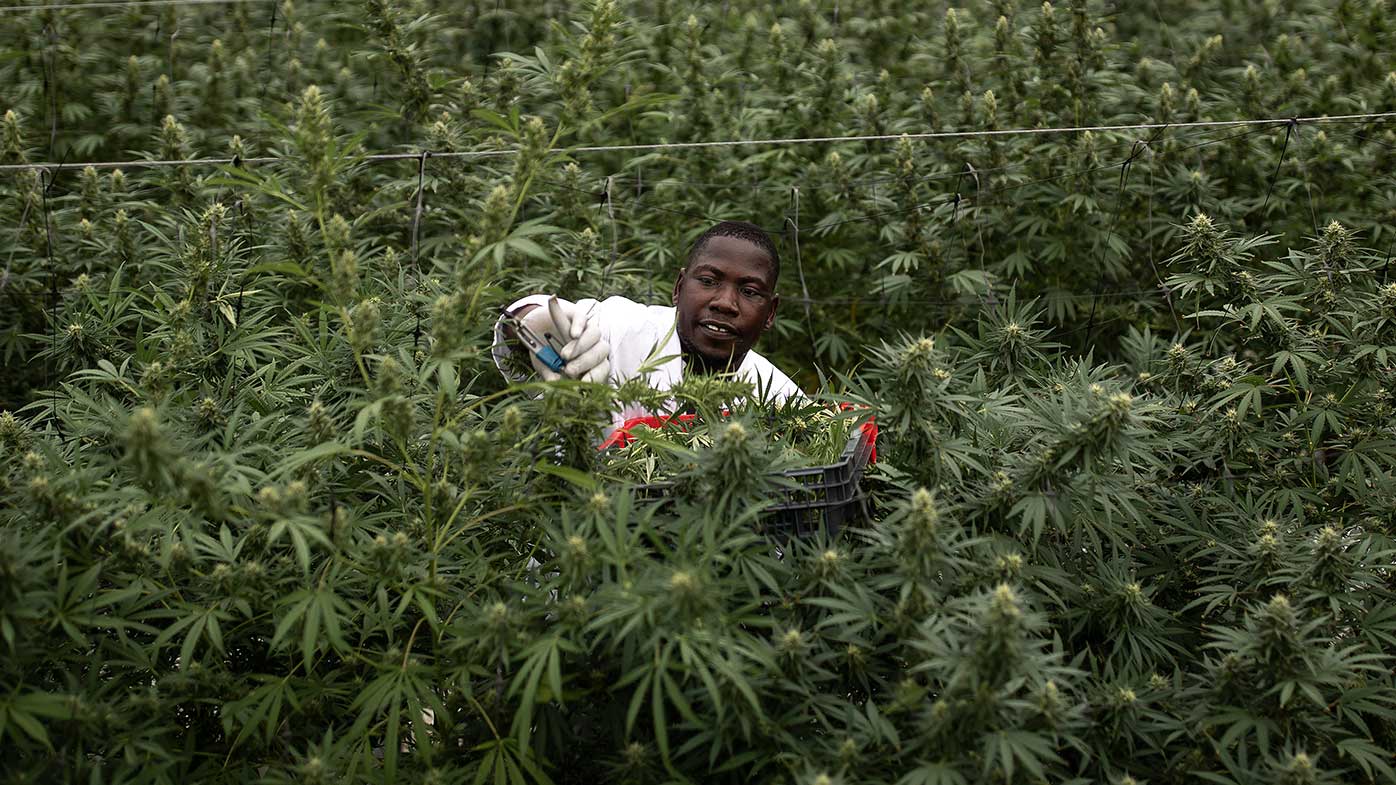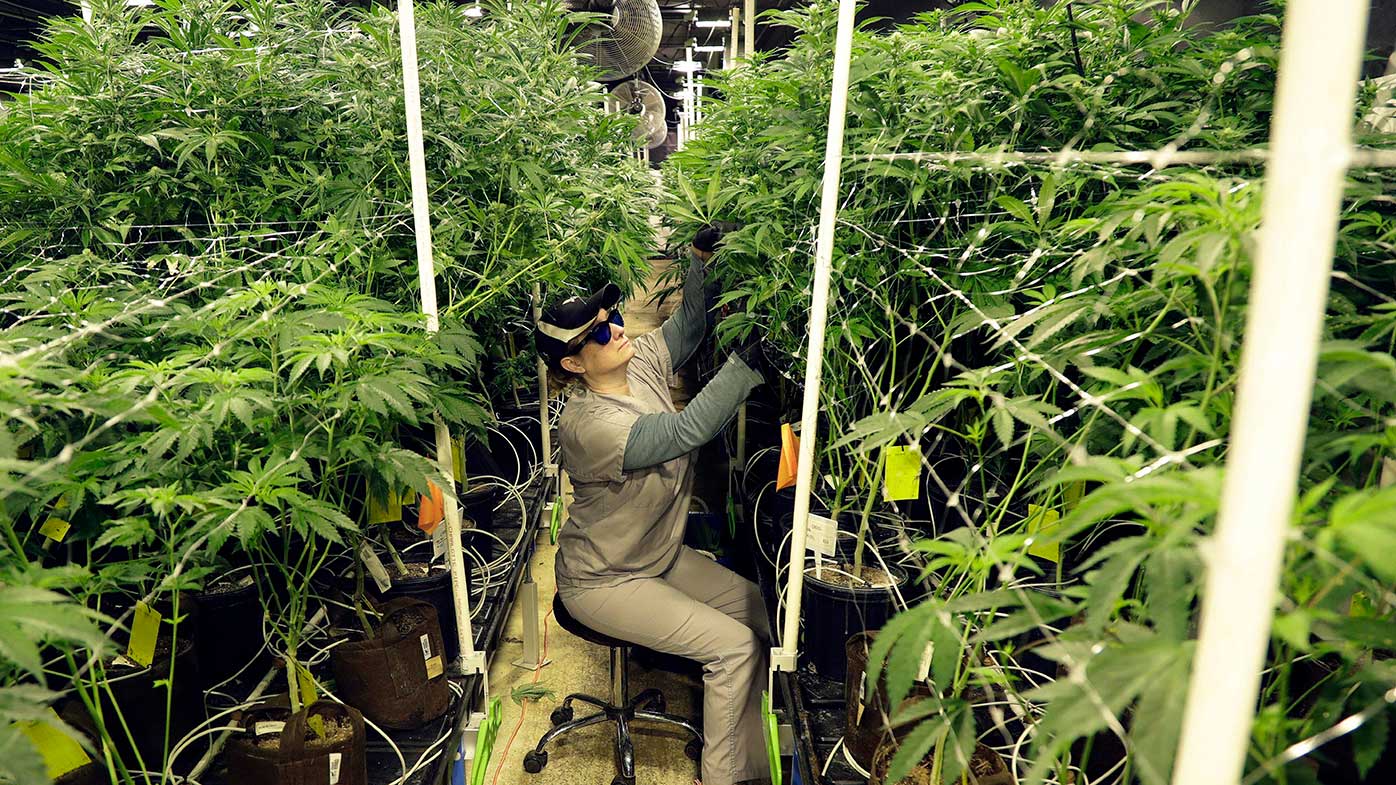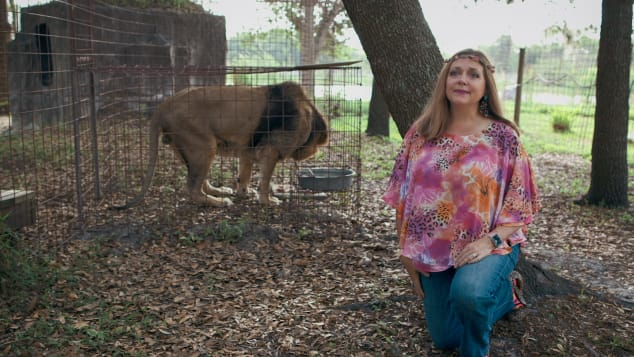The Democratic-controlled US House of Representatives have approved a bill to decriminalise and tax marijuana at the federal level, reversing what supporters call a failed policy of criminalising pot use and taking steps to address racial disparities in enforcement of federal drug laws.
Opponents, mostly Republicans, called the bill a hollow political gesture and mocked Democrats for bringing it up at a time when thousands of Americans are dying from the coronavirus pandemic.
“With all the challenges America has right now, (Republicans) think COVID relief should be on the floor, but instead, the Democrats put cats and cannabis” on the House floor, said House Minority Leader Kevin McCarthy, R-Calif. “They’re picking weed over the workers. They’re picking marijuana over (providing) the much-needed money we need to go forward″ to address the pandemic.

McCarthy’s comment about cats referred to a separate bill approved by the House to ban private ownership of big cats such as lions and tigers, a measure boosted by the Netflix series “Tiger King.″ That bill, approved by the House on Thursday, would allow most private zoos to keep their tigers and other species but would prohibit most public contact with the animals.
Democrats said they can work on COVID-19 relief and marijuana reform at the same time and noted that the House passed a major pandemic relief bill in May that has languished in the Senate.
Supporters say the pot bill would help end the decades-long “war on drugs” by removing marijuana, or cannabis, from the list of federally controlled substances while allowing states to set their own rules on pot. The bill also would use money from a new excise tax on marijuana to address the needs of groups and communities harmed by the so-called drug war and provide for the expungement of federal marijuana convictions and arrests.

“For far too long, we have treated marijuana as a criminal justice problem instead of as a matter of personal choice and public health,″ said Rep. Jerry Nadler, D-N.Y., chairman of the House Judiciary Committee and a key sponsor of the bill. “Whatever one’s views are on the use of marijuana for recreational or medicinal use, the policy of arrests, prosecution and incarceration at the federal level has proven unwise and unjust.″
Drug reform advocates called the House vote historic, noting it is the first time comprehensive legislation to decriminalise marijuana has passed the full House or Senate.
“The criminalisation of marijuana is a cornerstone of the racist war on drugs. Even after a decade of reform victories, one person was arrested nearly every minute last year for simply possessing marijuana,” said Maritza Perez, director of national affairs at the Drug Policy Alliance, an advocacy group. “Today the House took the most powerful step forward to address that shameful legacy.''

The vote comes at a time when most Americans live in states where marijuana is legal in some form, and lawmakers from both parties agreed that national cannabis policy has lagged woefully behind changes at the state level. That divide has created a host of problems — loans and other banking services, for example, are hard to get for many marijuana companies because pot remains illegal at the federal level.
Four states, including New Jersey and Arizona, passed referenda allowing recreational cannabis this year. Voters made Oregon the first state in the nation to decriminalize possession of small amounts of cocaine, heroin and methamphetamine.
Rep. Barbara Lee, D-Calif., called the House bill an important racial justice measure. The bill “is a major step, mind you, a major step toward ending the unjust war on drugs and racial inequities that are central to these laws,″ said Lee, who is African American.
The bill, which passed 228-164, now goes to the Republican-controlled Senate, where it is unlikely to advance. A related bill that would give pot businesses access to traditional banking services has languished in the Senate after being approved by the House last year.

Five Republicans supported the bill: Reps. Matt Gaetz and Brian Mast of Florida; Tom McClintock of California, Denver Riggleman of Virginia and Don Young of Alaska.
Six Democrats opposed it: Reps. Cheri Bustos and Daniel Lipinski of Illinois; Collin Peterson of Minnesota; Chris Pappas of New Hampshire; Conor Lamb of Pennsylvania; and Henry Cuellar of Texas.
Louisiana Rep. Steve Scalise, the No. 2 House Republican, said GOP lawmakers have been pushing for weeks to bring up a bill that allows small businesses to receive another round of Paycheck Protection Program loans. Many small businesses are struggling or have closed as a result of the pandemic.
Instead of allowing a vote on the GOP bill, House Speaker Nancy Pelosi, D-Calif., is “actually focused more on legalizing pot,'' Scalise said. ”It’s just unbelievable how tone deaf (Democrats) are to these small businesses and the jobs, the families that are tied to them.”
Senate Majority Leader Mitch McConnell also mocked the bill, saying in a floor speech that “the House of Representatives is spending this week on pressing issues like marijuana. You know, serious and important legislation befitting this national crisis.''

The Big Cat Public Safety Act also is unlikely to move forward in the Senate. Sen. Ted Cruz, R-Texas, said in a tweet that Democrats were moving to “Prosecute Tiger King” rather than address issues related to the COVID-19 pandemic.
But Carole Baskin, whose animal rescue organization is featured in the Netflix series, said the legislation would culminate a decades-long effort to end abuse of tiger cubs and other big cats, and protect the public and first responders from injuries and death.
“None of these important goals are partisan in any way, and we hope the Senate will follow suit quickly to make it into law,″ said Baskin, CEO and founder of Florida-based Big Cat Rescue.
from 9News https://ift.tt/3lJ7jKm
via IFTTT


0 Comments